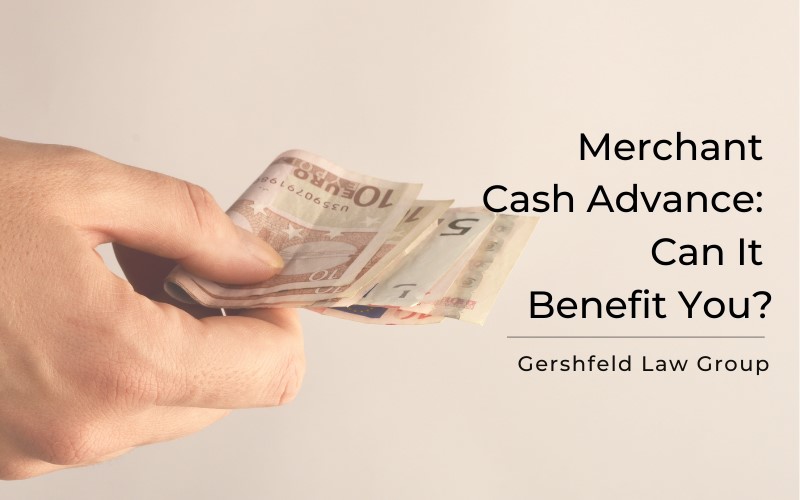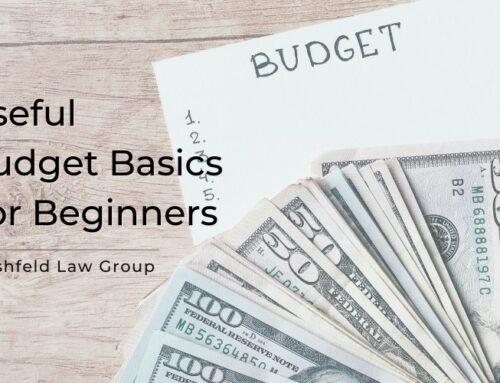A new small business is constantly on the lookout for methods to prop itself up in the near term so that the founders may get closer to their long-term objectives. If you need cash to fuel your company’s growth, a bank loan or line of credit are both likely options. But, aside from those options, there is also another one very few have heard of.
According to a 2015 Federal Reserve Bank of New York research, despite the fact that loans and lines of credit are the most popular financing approach for small businesses (57 percent and 52 percent, respectively), 7% had utilized merchant cash advances in the previous year.
Businesses with less than $1 million in annual sales were more likely to apply for merchant cash advances: 10% of micro-companies (profits below $100,000) obtained merchant cash advances in 2017. However, the question that now we ask ourselves is, what is merchant cash advance?
What is Merchant Cash Advance?
A merchant cash advance, often called an MCA, is a form of non-bank lending for businesses. A firm provides you with an upfront amount of money that you repay using a percentage of your debit and credit card purchases, as well as a charge, in the case of an MCA.
A merchant cash advance provider basically purchases future sales at a bargain. This sort of financing is intended for small firms that require immediate money and can be used to meet short-term expenditures as well as handle cash flow difficulties.
Is Merchant Cash Advance the Same as a Loan?
Merchant cash advances are not the same as loans, despite the fact that both entail receiving and repaying a sum of money. Rather, the business gives an advance against future credit card purchases to the provider, and the provider draws money from the company’s future credit card sales as payment. Payments are made on a daily or sometimes weekly basis.
How Does An MCA Work?
Although obtaining an MCA is not as complicated as receiving a loan, it’s not simply a cash lottery with no conditions. When you’re thinking about obtaining a merchant cash advance to help your company, there are certain conditions and restrictions to consider.
Advance Amount
This is the amount that the lender has committed to giving you as a merchant cash advance under the MCA. If you don’t ask for what you need, you’ll have to pay more in the long run. The advance may be less than, equal to, or far exceed your monthly sales revenue. It’s all about how much you need and how long you’re willing to wait for your lender to reimburse you for your daily sales.
Payback Amount
A percentage may differ from an advanced amount. Because an MCA lender charges a factor in addition to the funds they advance you, the total will be greater than the original sum. This sum can sometimes be far greater than the interest rate on other types of loans.
Holdback
A daily amount will have to be kept back from your credit card transactions while you’re working to pay off your merchant cash advance. Before applying for a merchant cash advance, assess your sales and see if they’re sufficient to cover the repayment period.
Merchant Cash Advance Vs. Business Loans
It’s not always clear how merchant cash advances are priced, making it difficult to compare them with business loans. A loan’s interest is calculated differently from an advance. An advance charges all interest on the whole amount up front, whereas a loan charges interest on a smaller portion of the total each month as the principal is repaid.
So, say for example that a $30,000 charge for a $10,000 advance is not equal to a 30 percent annual percentage rate (APR) business loan. The effective rate is actually much lower. Instead, it’s closer to a 50% APR. The effective rate can be considerably greater with additional costs.
Advances are used for short-term requirements such as purchasing inventory, and they’re the most appropriate form of finance for such situations. The majority are intended to be repaid over six to 24 months. Unlike other loans, paying off a merchant cash advance early will not save you money. The interest rate is the same whether the full term to repay the loan takes place or if it takes a shorter or longer period.
Because an advance does not need to be paid back in monthly installments, a company will pay more when sales are good and less when sales fall. This can assist businesses to avoid cash shortages that might occur more frequently with set monthly payments.
Overall, a business loan is often less expensive than a merchant cash advance. Before taking an advance, it’s a good idea to check to see whether a business loan is available. For instance, some merchant cash advance users could qualify for SBA-backed loans carrying a rate of 7 percent. Although a merchant cash advance can be tempting, there are numerous pitfalls that can leave small business owners in poor financial shape
MCA’s Pros and Cons
Pros
- Funding Speed
The advantages of MCAs are numerous, and one of the most significant is its speed. Advances may frequently be utilized online, with cash being deposited into a company’s account in just 24 hours. When it comes to asking a bank for a business loan, weeks might pass from the time a bank loan is applied for until the borrower is approved and the money appears in their account.
- Borrowing limits
A merchant cash advance is a short-term loan provided to businesses by a lender in order to meet immediate financial needs. A merchant cash advance may be as little as several thousand dollars, up to $250,000 or more. SBA loans, on the other hand, can go up to $5 million.
- Borrower Requirements
With a loan, your credit history is irrelevant. An advance may be granted to a company on the basis of its track record with credit card transactions. In most states, however, a business loan may require the company’s owner to have a personal credit score of about 700.
The lender may demand personal collateral, such as the owner’s home, or additional assets. A loan to acquire factory equipment, for example, might be secured by the equipment or a lien against the factory premises.
Cons
- Expensive
When compared to other forms of business financing, such as online term loans or company lines of credit, which have APRs ranging from 9% to 99%, MCAs are one of the most expensive “loans” possible.
The typical interest rate on merchant cash advances is around 35%, but it can reach 350% in certain cases, depending on the lender, amount requested, costs, the time required to repay, and company revenue. Factor rates, unlike regular interest rates, might make determining how much an MCA will cost you more difficult.
- Frequent Repayment and Debt Cycle Risks
Merchant cash advances are paid back on a daily (sometimes weekly) basis, and payments are made directly from your incoming sales. This can have a significant impact on your cash flow.
When you factor in the high cost, frequent repayments, and the fact that you may be trapped into a debt cycle that’s hard to escape from, especially if you need another loan after taking out one and can’t qualify for other options, it’s easy to see why so many people get caught up in this trap.
- Early Repayment Provides No Advantage
Because you must repay a set amount of fees regardless of the situation, early repayment does not save you interest over time, unlike amortizing loans.
- Confusing Contracts
If you’re unclear about the terms of a merchant cash advance agreement, you’re not alone. Factor rates and payment schedules that are based on percentages of your daily sales can be difficult to understand, especially if this is your first time using one.
This is due to the fact that MCA lenders typically don’t include APRs in their agreements, making it difficult to compare these things with other sorts of loans. Despite the fact that several states have attempted to impose transparency on MCA businesses in recent years, providers have previously been condemned for contracts that are unclear and difficult to comprehend.
- No Federal Regulation
Merchant cash advances, which are conducted as commercial transactions rather than personal loans, are not regulated by the federal government. Instead, MCAs are governed by the Uniform Commercial Code in each state. This low-level supervision has led to businesses being defrauded by predatory organizations, which use deceptive marketing and sales approaches to offer fast approvals and funding.
Who Are MCAs Ideal For?
A merchant cash advance is ideal for a small firm that needs extra funds to improve its business and make it more competitive. Not all tiny firms may obtain bank loans to accomplish everything they want to do.
An MCA is not the best or ideal solution for a firm that has gone through a huge catastrophe and has had to stop all operations. In comparison to an MCA, looking for help from a traditional bank loan or grant will be preferable since they don’t anticipate you to keep on making routine payments in order to pay them back.
Gershfeld Law Group and Your Finances
Merchant cash advances are faster, less complicated, and more readily available to firms with little credit history than consumer cash advances. They are not always simple to obtain, however, they can be more costly than business loans. They are only available for a short time period, making borrowers with the time and credit necessary to acquire them preferable.
If you find yourself stuck in debt and can’t find a way out, contact Gershfeld Law Group today!






